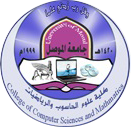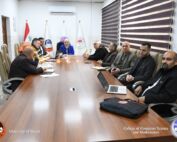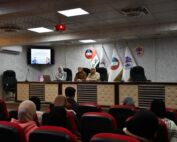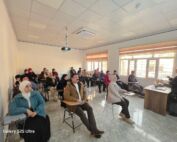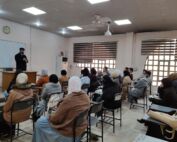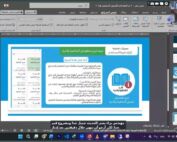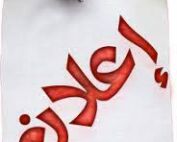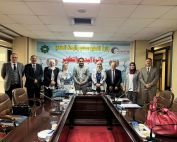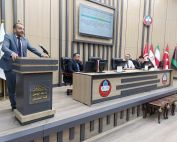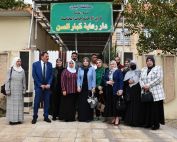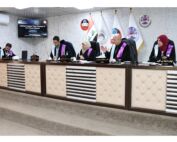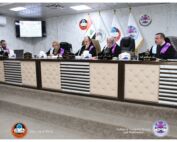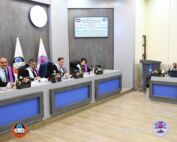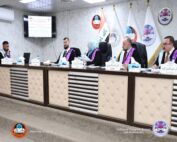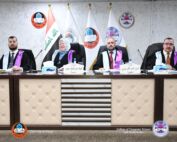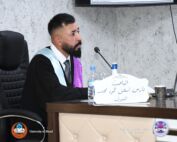4 November، 2021
Discussion of a doctoral thesis in the Faculty of Computer Science and Mathematics – Department of Mathematics

Discussion of a doctoral thesis in the Faculty of Computer Science and Mathematics – Department of Mathematics with the title:(Hyper-Parameters Optimization of V-Support Vector Regression based on Harris Hawks Algorithm with Opposition based Learning Technique)A PhD thesis was discussed in the discussion hall of the College of Computer Science and Mathematics at the University of Mosul on Thursday, 10/21-2021, by the student Omar Muhammad Ismail Ibrahim and under the supervision of Prof. Dr. Omar Saber Qassem and Professor Dr. Zakaria Yahya Al-Jammal.I dealt with solving many real problems with support vector regression, especially support vector regression (v-SVR), but there are excessive parameters that usually need to be adjusted. Additionally, v-SVR cannot perform feature selection. The nature-inspired algorithms were used as feature selection and as an estimation procedure for hyperparameters. These parameters represent C, sigma and V.Three methods of parameter estimation and feature determination are also proposed in this thesis. The proposed first method is “Feature selection and support vector regression type V-” (BHHOA), where we use Harris’ hawk algorithm for the examples of hyper-regressive parameters of support vector V. The second method is “Feature selection with support vector regression type V-based on interview-based learning” (BHHOA- OBL). This method is characterized by the use of an interview-based learning method that targets the search space. The quadratic transfer function was used instead of the familiar transfer function in the third method “feature selection with the regression of the support vector V-type using the quadratic transformation function” (QBHHOA-OBL).
The experimental results of BHHOA confirm the efficiency of the proposed algorithm,This proves the ability of BHHOA to search for the best hyperparameter values and select the most useful features for prediction tasks. The (BHHOA-OBL) method showed through experimental results that it outperformed (BHHOA). The experimental results also demonstrated a better performance of (QBHHOA-OBL) than the previous two methods.The discussion committee was chaired by Prof. Dr. Ban Ahmed Hassan, with the membership of Prof. Dr. Laheeb Muhammad Ibrahim and Assistant Professor Dr. Munther Abdullah Khalil / Tikrit University / College of Computer Science and Mathematics
Assistant Professor Dr. Ziyad Muhammad Abdullah / Tikrit University / College of Computer Science and Mathematics
Assistant Professor Dr. Ghada Muayyad Rashid, with the supervision and membership of Prof. Dr. Omar Saber Qassem and Professor Dr. Zakaria Yahya Al-Jammal.
